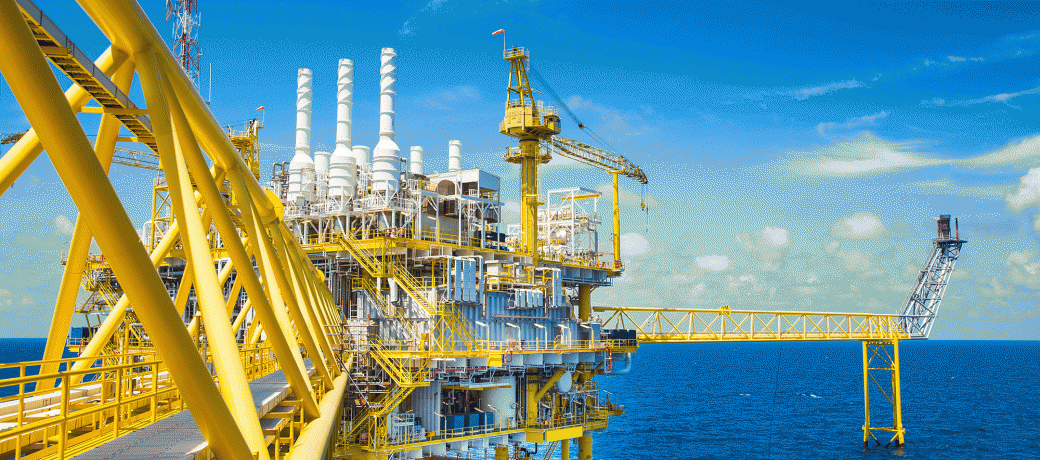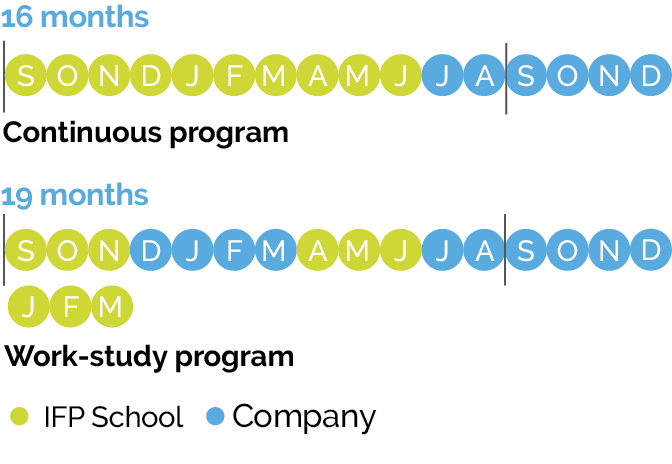
In brief
Presentation
The Energy industry is definitively experiencing a profound transformation. It must face the challenges of energy transition, not only through the optimization of the production of hydrocarbon fields while limiting CO2 emissions, but with the development of new resources such as geothermal energy, as well as new usages of the subsurface, particularly for gas storage (CO2, H2, etc.) . This industry is looking for new actors, deeply motivated by sustainable and environment-oriented management of the subsurface. Would you like to be one of these? Our Petroleum Engineering and Project Development program provides you all the techniques and work-flows necessary for meeting these challenges, with a training strongly based on actual, industry-specific case studies.
The key points of the program
Career prospects for graduates
Program & planning
Program
Reservoir
- Fundamentals of reservoir engineering
- Static reservoir characterization
- Georesource production mechanisms
- Reservoir modeling and simulation
Drilling-completion
- Well engineering
- Conduct of drilling operations
- Well productivity
- Drilling-completion project
Production
- Development of offshore fields
- Effluent treatment
- Process engineering and energy efficiency
- Integrated production projects
Transverse skills and professional attitudes
- Professional Skills Module
- Innovation and Entrepreneurship Module
- Energy Transition module
In addition, HSE issues – particularly concerning safety and environmental impact– are addressed in all courses. The students are also trained in the evaluation of CO2 emissions related to the exploitation and usages of the subsurface.
Planning
The two examples of schedules shown below correspond to the most frequently encountered cases for students in the program:
- a 16-month continuous program for students with a 4- or 5-year engineering degree;
- an alternating school/company 19-month program for students with a 5-year engineering degree.

There are other possible cases, such as:
- an 10-month continuous program for a student with a 5-year engineering degree who has already had placements in a company for at least 4 months, approved by IFP School at the time of admission;
- a 22-month alternating school/company program for an engineering student in the penultimate year of a major European school or university having signed a double-degree agreement with IFP School.
Career opportunities
Fields
- Multi-energy companies
- Services and engineering companies
- Drilling contractors
- Underground storage operators
- Geothermal energy companies
- Consulting companies
- Public services (water cycle management, waste management, etc.)
Jobs
This program concerns the entire chain for conducting a subsurface project, which can be devoted either to the exploitation of hydrocarbons or geothermal energy, or to the usage of the subsurface for gas storages. It starts with the understanding of the reservoir containing the resource or being the place for storing, to drilling and surface-installed production facilities. It leads to three main job families: reservoir engineering, drilling engineering and production engineering
- Reservoir engineers study the production potential of reservoirs and the technical means to be implemented to optimize recovery rates.
- Drilling engineers study, design and lead drilling operations and maintenance operations in oilfield wells.
- Production engineers work on engineering surface production facilities designed to process fluid products (hydrocarbons, hot water, steam, etc.), monitor projects, or are involved in facility operation.
Combining these fields of expertise in a single program fosters a broad vision of the subsurface project which is extremely useful within energy companies or services and engineering providers.
Funding & sponsorships
Typical class profile
Students in this program are almost all sponsored by companies (through sponsorships, apprenticeships or as seconded professionals) that finance their living expenses during the academic period and contribute towards their tuition.
Main sponsors
Among these companies, the following have been IFP School partners in recent years (non-exhaustive list):
- Assala Energy
- BNP Paribas
- BP
- Cepsa
- Elengy
- Engie
- Equinor
- Flexi France
- IPC
- IFPEN
- Maurel & Prom
- Perenco
- Saipem
- Schlumberger
- Shell
- SMP
- Storengy
- Vallourec
- TechnipEnergies
- TechnipFMC
- TotalEnergies
- Trident Energy